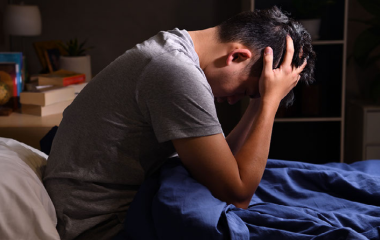Veterans are particularly vulnerable to experiencing nightmares. Usually, nightmares are more common during periods of high stress and after traumatic events.
Changes in sleep schedules during deployment, the stress of combat, injuries, and challenges related to post-deployment reintegration into society can all play a role in veterans experiencing nightmares.
How common are nightmares?
It’s estimated that 2-8% of adult civilians have weekly nightmares that affect sleep quality or cause daytime symptoms.
This number is much higher in veterans. According to the U.S. Department of Veterans Affairs, as many as 71-96% of veterans with post-traumatic stress disorder (PTSD) may have nightmares.
PTSD plays a major role in nightmares. Studies have suggested that as many as 34% of veterans have PTSD. Nightmares are one of the major symptoms that can affect the lives of veterans with PTSD.
Are there different types of nightmares?
Nightmares fall into two categories: idiopathic or secondary.
- Idiopathic nightmares usually only appear during a short period of time when you are experiencing high stress of emotional instability. This type of nightmare usually ends after the stressor is resolved.
- Secondary nightmares are related to a medical condition (such as trauma), a mood or psychiatric disorder (such as anxiety, depression, or personality disorder), substance abuse or medication use/withdrawal, or a sleep disorder (such as obstructive sleep apnea (OSA), REM sleep behavior disorder, or nocturnal seizures).
For veterans, past trauma may influence dreams and trigger nightmares. While most nightmares tend to occur in the final third of the night, nightmares that arise from trauma may occur in earlier sleep stages.
How are nightmares treated?
In most cases, treatment for nightmares is not necessary. However, if you have nightmare disorder and experience severe sleep disturbances and daytime sleepiness, treatment by a behavioral sleep medicine specialist is recommended.
These specialists may use several different types of techniques to treat nightmares. They can help you understand what is causing your nightmares and process traumatic events.
There are certain medications that may also be effective in reducing nightmares.
There may be other alternatives that help reduce nightmares, too.
A 2013 study suggested that CPAP therapy reduced nightmares in veterans with PTSD and sleep apnea. The study of 43 patients found that the mean number of nightmares per week fell significantly when patients used a CPAP device.
New technologies to help ease nightmares are being tested. One college student developed an app to reduce nightmares after he saw his father, a veteran with PTSD, struggle. The app detects biometric signals indicative of a nightmare. It buzzes to rouse a sleeper long enough to disrupt a nightmare without fully waking.
While technologies like this are still in their infancy, there are solutions to help veterans who experience frequent, traumatic nightmares. Seek help from your primary care doctor at Veterans Affairs or use the AASM sleep center directory to find an accredited sleep center near you.
Medical review by Virginia Skiba, MD
Authored by:
Kate Robards





